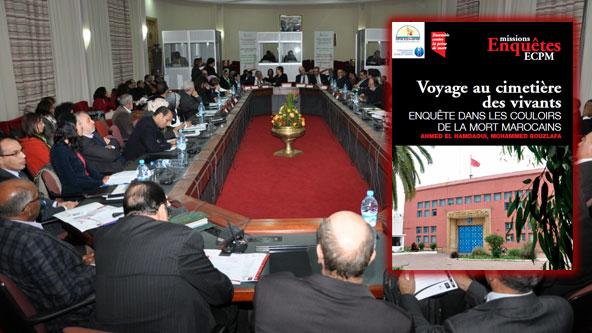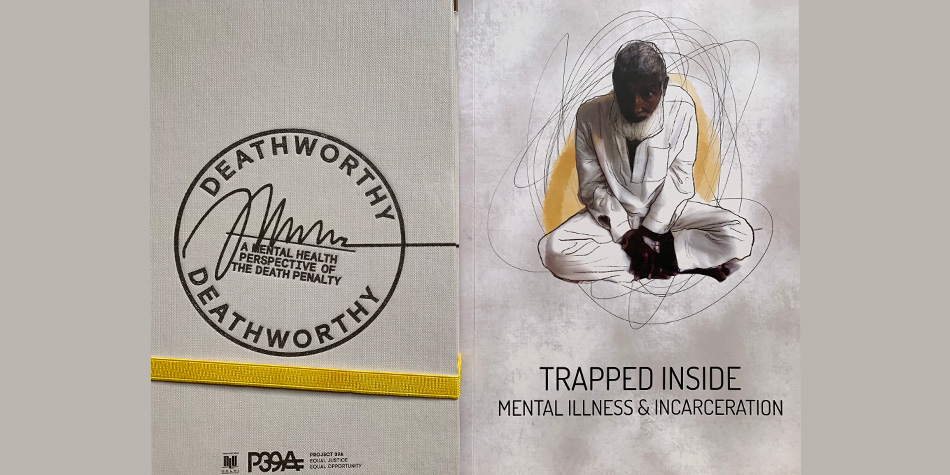
Abolitionist movement shifts up a gear in Morocco
MENA
Morocco’s Parliamentary Network Against the Death Penalty held its first event in Rabat on 10 and 11 December 2013, in association with Together Against the Death Penalty (ECPM) and the British Foreign Office.
“This is the first time parliamentarians hold a debate on penal reform within the parliament – many new ideas were circulated,” said Mostafa Znaidi, deputy coordinator of the Moroccan Coalition Against the Death Penalty. He added that several MPs who did not join the network took part in the conference nonetheless. Some members of the majority Islamist party PJD, which opposes abolition, attended part of the proceedings.
“The objective was to include the issue of the death penalty in the reform of the Penal Code, which is expected to conclude next year,” said Nicolas Perron, in charge of ECPM’s Morocco programme. “We already know there will be a reduction in the number of capital offences. The Parliamentary Network wants a lot more than that: it is calling for abolition.”
The Network now has 208 members in both houses of the Moroccan Parliament and they registered an abolition bill in early December.
Lawyers, human rights defenders, criminologists, Islamic scholars, civil servants and diplomats joined MPs in Rabat to explore arguments and methods in support of this initiative.
Among them was Frank Warburton, who was hired by the World Coalition to prepare a manual of good practices intended to help those parliamentarians who want to push for abolition in their legislatures. MPs from other Arab countries were also present to discuss their experience with their Moroccan colleagues.
Four visits in 12 years on death row
An unprecedented investigation into Morocco’s death row is among the tools available to local advocates of abolition. It reveals the scale of problems created by capital punishment in the country.
“Two thirds (67%) of those sentenced to death in Morocco suffer from serious mental conditions. Most of those conditions should have waived any criminal responsibility at the trial stage,” psychiatrist Ahmed El Hamdaoui and law professor Mohammed Bouzlafa wrote in the book A Journey through the Graveyard of the Living.
The publication was largely based on interviews with 52 prisoners in three jails, e.g. around half of Morocco’s death row population. It also documents harsh detention conditions that violate Moroccan and international standards.
“Here, those sentenced to death are abandoned to their fate. We have been buried alive. Some prisoners among us have never received a visit and suffer a great deal from that,” a prisoner told investigators. “I personally have been on death row for twelve years, and I have received only four visits from my family.”
The wife of a prisoner on death row Kenitra central prison said: “Each time the phone rings, I can think of only one thing: ‘Come claim the body of your husband.’ (…) My husband was sentenced to death, but honestly, I’m the one being put through his ordeal and his pain.”
The Moroccan Organisation for Human Rights (OMDH), a member of the World and Moroccan Coalitions, conducted the investigation. The resulting material was published by ECPM as part of its collection of death row investigations around the world. “After Tunisia, we now wish to do this in Algeria and issue a joint publication on the Maghreb,” Nicolas Perron said.
The book was presented at a press conference and at the Parliamentary Network event, and will now inform lobbying efforts by Moroccan abolitionists and ECPM in 2014 and 2015 to achieve better detention conditions on death row and support efforts towards abolition.
“We are also recommending that the moratorium on executions observed in Morocco since 1993 be officialised by a yes vote for the UN General Assembly’s next resolution on this issue,” Perron added. ECPM will present the results of the investigation at a side even in New York on that occasion.
A website to advocate “life”
A Journey through the Graveyard of the Living is among the first documents published on the Moroccan Coalition Against the Death Penalty’s new website, www.tudert.ma. The website is named after the Berber word for “life” and a beta version is online. Its final version will be launched early next year.
“The website will first of all disseminate information about the Moroccan abolitionist movement by giving accounts of local actors’ activities and publishing documents by our members as well as by other sources, such as UN agencies or Moroccan legal bodies,” said Mostafa Znaidi. “This is a tool to show what is being done here, and relay what others are doing.”
Reinforcements for Algeria’s civil society
ECPM and Penal Reform International (PRI), another World Coalition member, held a conference on the death penalty in Algiers on 15 and 16 December 2013 in association with the National Consultative Commission on the Promotion and Protection of Human Rights (CNCPPDH).
The event focused on the role of civil society in the abolition process at the national, regional and international levels. It was an opportunity for many regional experts to support the Algerian abolitionist movement in a difficult national context – for the first time since 2009.
Algerian media gave the conference broad coverage, including the newspaper Le Temps d’Algérie, which quoted abolitionist lawyer Miloud Brahimi as saying: “Algeria has chosen national reconciliation after a decade of tragedy, and the country will certainly accept the abolition of this punishment.”
Heithem Chebli of PRI noted that « applying the death penalty to exert revenge cannot achieve the ideal form of justice the whole of mankind is striving to achieve”.
ECPM Executive Director and World Coalition Vice-President Raphaël Chenuil-Hazan reminded the participants of the death penalty’s troubled history in the country: “The guillotine and the death penalty were an instrument of terror and violence used by the French colonial power in Algeria,” he said.
CNCPPDH President Farouk Ksentini supported the abolitionist movement’s demands, but he maintained that the death penalty was justifiable in the cases of crimes against children.




